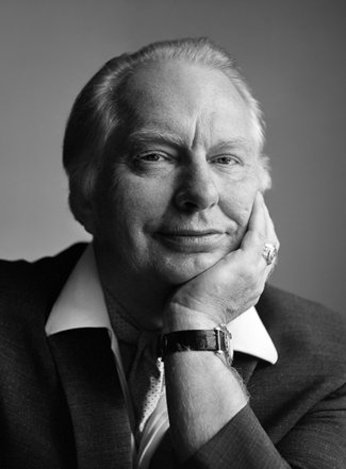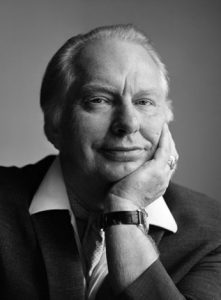
L. Ron Hubbard and a Legacy for Southern Africa
- By Kelly Frazier --
- 02 Jun 2021 --

and Founder of the Scientology religion.
The event would further serve to draw attention to the inequalities and abuses engendered by the underlying doctrines of separation that pervaded the rest of white-ruled Southern Africa.
From the earliest days of Scientology, L. Ron Hubbard, founder of the religion, looked on Southern Africa in a special light.
In 1950, when Hubbard published Dianetics: The Modern Science of Mental Health, its impact in the United States was a phenomenon, with some 750 Dianetics groups springing up across the country. But its reach was also felt in Southern Africa and throughout the English-speaking world. Scientology soon followed, in 1952, and the first Church of Scientology was established in Los Angeles, California, in 1954.
That same year, Hubbard published the Creed of the Church of Scientology. It began:
We of the Church believe,
“That all men of whatever race, color or creed were created with equal rights.”
The Creed’s declaration of equality and human rights stood in diametric opposition to the racist principles that had been incorporated as the law of South Africa in 1948, when the national government officially enacted apartheid.
South African Scientologists established a Church in Johannesburg in November 1957 — the first Scientology Church in Southern Africa — and adopted the Creed.
In 1960, Mr. Hubbard traveled to South Africa from his home in England and took up residence in Johannesburg, where for the better part of a year he assisted and guided the young Church and its burgeoning Scientology community. He worked with individuals of all races and decried apartheid as “a fascist arrogance.”
At a congress — a special event for all Scientologists and the general public — in Johannesburg in January 1961, he expressed his belief in the people of the region and his vision for their future with his summating statement: “From Southern Africa will spring the next great civilization on this planet.”
Before returning to England, he wrote his vision for South Africa, drafting a Bill of Rights and a constitution that called for “one man, one vote” regardless of race, color or creed; a Bill of Rights that embraced fundamental freedoms; and an equitable penal code.
Several years later, in 1965, the neighboring country of Rhodesia (today’s Zimbabwe) declared independence from Great Britain in an effort to avoid transition to black-majority rule, and formed a government that disenfranchised blacks.
A year later, Hubbard traveled to Rhodesia and took up residence in the capital, Salisbury (now Harare), where he reached out to officials to make the case for inclusion and equality of all citizens — again fully expressed in a drafted constitution, Bill of Rights and penal code, which he submitted to government ministers.
For his efforts, Mr. Hubbard was refused a visa extension and so had to leave the country.
Nonetheless, Scientologists continued to advocate for the rights of all people of Southern Africa. In the 1970s, South African Scientologists unearthed a network of privately owned, profit-making psychiatric work camps in South Africa where blacks were being exploited as slave labor — their cooperation enforced through electric shock. The camps’ appalling conditions resulted in illness and deaths.
The Church exposed the well-guarded secret of the slave camps in its South African edition of Freedom Magazine. As a result, Freedom was banned by the powers that be. But not for long.
The Church took the facts to the United Nations, which commissioned the World Health Organization (WHO) to investigate. The WHO’s resulting report declared “the chain of private institutions … is a tool for human rights oppression and racial discrimination.”
After the fall of apartheid in 1994, Scientologists further presented testimony on this monstrous legacy of apartheid to South Africa’s Truth and Reconciliation Commission.
In 2003, when the ecclesiastical leader of the Scientology religion, David Miscavige, launched his program to create a new breed of Ideal Scientology Organizations, the first of these Churches that he inaugurated was the Church of Scientology Johannesburg. He returned for the New Years Day 2019 dedication of the Scientology Advanced Organization at Kyalami Castle in Midrand, South Africa.
In so doing, he realized L. Ron Hubbard’s vision for creating a headquarters for Scientology in Africa, a place that could serve as a hub to further humanitarian campaigns and spread the message of equality and respect and the empowerment of all people of this land.
The Church of Scientology recently published visual documentation of the work of Scientologists throughout the world over the past year of the coronavirus pandemic. Their work in South Africa echoes the continuing dedication of Scientologists to accomplishing Hubbard’s vision for the country. It is available on the Scientology website: 20/21 – A Look Back & A Look Ahead: South Africa



















